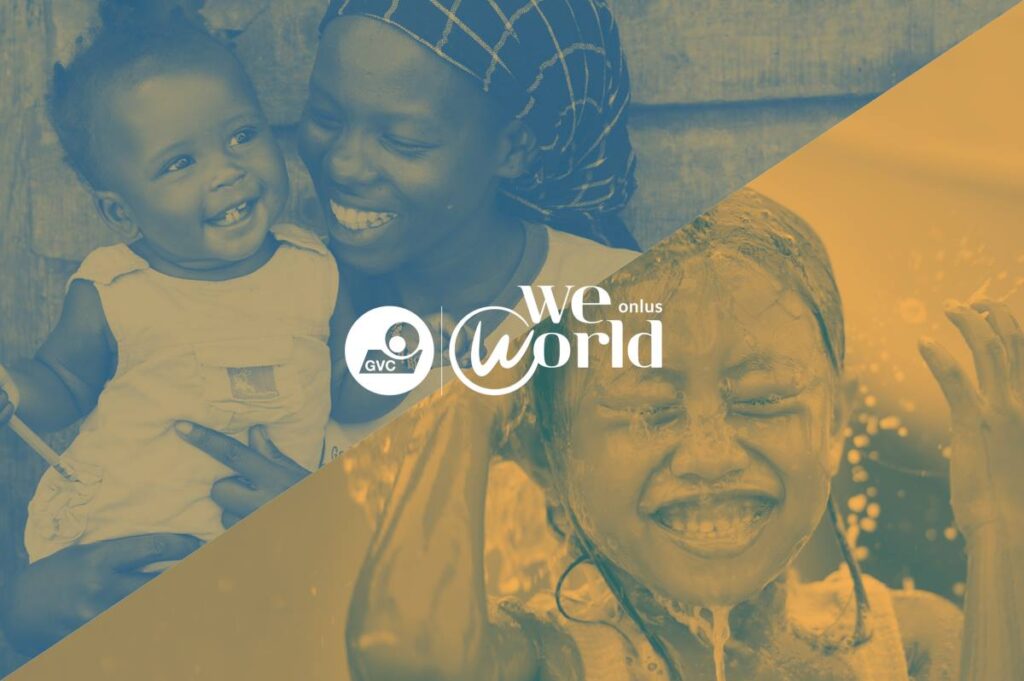The Field Experience is a fundamental part of our Masters’ learning path. It is an opportunity to put our students’ skills into practice and to improve their project design competencies while supporting the resolution of problematic situations present on the territory, together with a partner NGO.
2020 saw the fruitful collaboration between Social Change School and WeWorld–GVC, who organized together the Field Experience involving Master PMC – Project Management for International Cooperation fellows in a participatory project identification.
Due to the COVID-19 pandemic, the activities that were originally planned to take place on the field were realized remotely instead, from August 31st to September 11th. The elaboration of deliverables and final outputs took place in September 2020. Even with the pandemic, the School and its fellows were able to deliver the promised results and reach the didactic objectives.
The experience was supervised by Social Change School’s Training Team, composed by Master PMC Director Alessio Di Carlo and Didactic Coordination Member Marinella Pellé.
The aim of the collaboration between SCS and WeWorld-GVC was the identification of a new internal proposal in the sector of Migration in the Tunisian context, more specifically in the South of the country.
The identification phase is crucial to the development of all projects, as it involves potential stakeholders and target groups. The scope of their participation is to identify the objective of the action, analysing the problems these parties could be affected by and collecting the necessary information to proceed to the formulation phase. The aim of our students’ work was therefore to give a strong contribution to this phase, supporting WeWorld-GVC in a participatory process that will be implemented to design an effective project proposal.
To this end, the activities were shaped by using the Community Protection Approach (CPA), elaborated and implemented over the years by WeWorld-GVC as an instrument of community engagement and empowerment to develop multi-stakeholders integrated protection programs.
The Community Protection Approach – CPA – is the result of continuous, action-led research conducted by WeWorld-GVC having started in 2013, with the collaboration of key humanitarian and research partners in protracted crises. The CPA, present in its 3rd revision, provides a systematic set of operational instruments for local responders and aid actors to design projects and programs, and to steer area-based coherence and complementarity with other multi-sector actions under an Integrated Protection framework.
The aim of the entire process was to assess the applicability and the declination of the CPA in the specific context of interest.
“Despite the remote settings” commented Marinella Pellé, part of the Didactic Staff of the School, “the Field Experience carried out in partnership with WW-GVC Tunisia was an invaluable learning and practicing opportunity for the Master PMC students. Not only did they manage to get in touch with real stakeholders and to carry out a concrete context analysis – applying knowledge and methodologies acquired during the master path, but they were also able to work with specific tools and innovative approaches. The Field Experience’s remote feature also gave the students a practical hint of what remote management in the humanitarian and development field looks like.”
As expressed by Nick Gianni, Linking Relief, Rehabilitation & Development (LRRD) Officer at WW-GVC Tunisia, “The remote field exercise conducted by the SCS master students was not only a learning experience familiarizing our methodologies for context analysis – a process of our integrated protection programming – but demonstrated the adaptability of the CPA to acute protection contexts involving migrants. This provides us with a springboard from which we can further explore possibilities of joint programming in southern Tunisia”.
Francesco Michele, International Advocacy & Innovation Unit Coordinator at WeWorld-GVC explains that “A fundamental aspect of the CPA is its adaptability to different complex contexts. The students’ exercise was fundamental for WeWorld-GVC’s action-research to test the CPA and better streamline its instruments and methodology. WeWorld-GVC was very pleased that the students were able to understand the CPA and, together with key actors working with migrants in Tunisia, managed to propose practical elaborations to contextualize it”.
The two objectives of the exercise were realised by the students; the contextualisation of the CPA within a specific environment involving migrant and host communities, and the identification of further interventions that WeWorld-GVC can undertake. The final report acknowledged the particular challenges in partnering with other stakeholders, recommending mobilizing resources for and building capacities of national NGOs/CSOs and local authorities, with a focus on actors working specifically with migrant groups.



